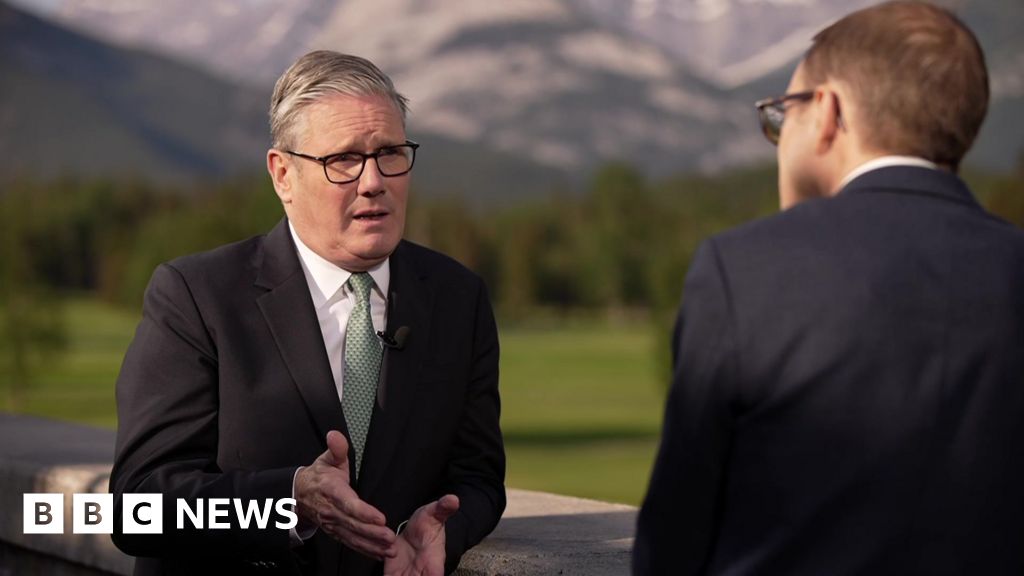Sir Keir Starmer has publicly supported his recent decision to launch a nationwide inquiry into grooming gangs, despite previously criticizing calls for such an investigation as opportunistic. He emphasized a commitment to leaving ‘no stone unturned’ during the inquiry.
Dame Louise Casey, who is leading the investigation, expressed her hope that the inquiry would facilitate a ‘national reset’ regarding how grooming gang issues are addressed. She urged those providing evidence to be receptive to scrutiny and change, stating, ‘That, to me, is a practical, common sense way of doing politics.’
In an interview with BBC political editor Chris Mason, Prime Minister Starmer explained that he commissioned Dame Louise to examine the issue thoroughly and shared that he agreed with her findings after reviewing her report.
Sir Keir’s support for the national inquiry comes after he previously accused its advocates of aligning with far-right agendas. His shift is particularly notable in light of recent public discourse surrounding the issue, which has gained traction due to comments made by high-profile figures, including tech entrepreneur Elon Musk.
Baroness Casey, a veteran in social issues, paused her work on adult social care to investigate the nature and scale of group-based child sexual abuse in England and Wales. Initially, the Labour government had rejected the idea of a national inquiry in favor of five local investigations. However, Casey’s view evolved after she found that local councils were reluctant to initiate their own inquiries.
Her report advocates for a coordinated national police effort to reassess unsolved child exploitation cases and calls for an independent commission to oversee the inquiry with the authority to compel testimonies.
In January, Starmer criticized those calling for a national inquiry, stating they were ‘jumping on a bandwagon’ to amplify the far-right’s rhetoric. When asked about his previous comments, he noted his intention was to challenge politicians, particularly Conservative leader Kemi Badenoch, ‘who in power had said and done nothing, who are now making claims that they make.’
The report also draws attention to inadequate data on the ethnicity of offenders, suggesting that officials have hesitated to address this sensitive subject. Findings from local inquiries in Greater Manchester, South Yorkshire, and West Yorkshire revealed a troubling trend: a significant number of suspects in group-based child sexual exploitation were identified as being from Asian backgrounds.
Labour’s safeguarding minister, Jess Phillips, remarked in an interview that some within her party have ‘put their heads in the sand’ about ethnicity-related matters, though she stated she had not ignored these issues. Responding to this, Sir Keir noted, ‘I’ve long been concerned about people sticking their heads in the sand about all sorts of issues in relation to child sexual abuse.’ He stressed that the national inquiry must address all aspects, including ethnicity and the roles of public officials involved.
Concerns regarding child sexual exploitation have persisted since 2010, when men from the Asian community in Rotherham received prison sentences for sexual crimes against minors. Subsequent local inquiries uncovered extensive abuse, with estimates suggesting that approximately 1,400 children were exploited in the region between 1997 and 2013.
Baroness Jay’s 2022 report warned of ‘endemic’ abuse across communities in England and Wales, yet its 20 recommendations remain largely unaddressed. In a recent discussion with MPs, Casey urged that the government be held accountable within six months to see if her report’s 12 recommendations are implemented.
She highlighted the need for increased prosecutions and investigations into both historical and ongoing child sexual exploitation cases. Additionally, Casey emphasized the importance of treating adults who engage in penetrative sex with children under 16 with the gravest charges of rape instead of lesser offenses. She urged the public to maintain a calm perspective on the sensitive topic of ethnicity in relation to exploitation data, clarifying, ‘If you look at the data on child sexual exploitation, suspects and offenders, it’s disproportionately Asian heritage. If you look at the data for child abuse, it is not disproportionate, and it is white men.’

